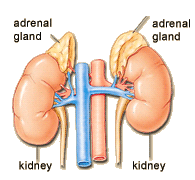What you Need to Know to be Stress Free
By Andrea Grace
www.andreagrace.com
We were born to handle stress. Stress is simply our body’s reaction to change. People experience stress in times of negative as well as positive change. Change can be something instantaneous like a car accident (negative), or it can be more long term like bringing up a child (positive). Stress therefore is not necessarily a bad thing but it gets a bad rap because most of us do not know how to manage it.
 Let’s take a moment to gauge how you are at this moment. How would you say you feel right now? On a scale of 1 to 5, 1 being calm and physically relaxed and 5 being panicked and physically tense, what number are you? Let’s take a moment to gauge how you are at this moment. How would you say you feel right now? On a scale of 1 to 5, 1 being calm and physically relaxed and 5 being panicked and physically tense, what number are you?
Let's take a stock take of how you are doing physically. Where are your shoulders? Are they drawn down, or are they up around your ears? Where is your tongue? Is it stuck to the roof of your mouth, or is it at rest at the bottom of your mouth? If you have a mirror, or reflective surface handy, look at yourself. Do you have a Mona Lisa smile, or does your expression resemble a Van Gogh self-portrait?
 While it would be reasonable to assume that, as you read this article, you are in a state of relaxation, considering the pressures of our society your body is probably operating in stress mode. If your shoulders are raised towards your ears and your tongue is stuck to the roof of your mouth, you are physically tense and possibly feeling more anxious than calm. How do you feel on a regular basis? Are you tired a lot of the time? Do you wake up in the morning aching and sluggish? Do you wish you could stay in bed even though you got a good night’s sleep? Or perhaps you didn’t get a good night’s sleep because your mind just wouldn’t switch off from the day’s goings on. Even if these apply to you, you may not consider yourself unduly stressed because you are so used to feeling this way. It is normal to you. Being normal, does not mean that it is healthy. While it would be reasonable to assume that, as you read this article, you are in a state of relaxation, considering the pressures of our society your body is probably operating in stress mode. If your shoulders are raised towards your ears and your tongue is stuck to the roof of your mouth, you are physically tense and possibly feeling more anxious than calm. How do you feel on a regular basis? Are you tired a lot of the time? Do you wake up in the morning aching and sluggish? Do you wish you could stay in bed even though you got a good night’s sleep? Or perhaps you didn’t get a good night’s sleep because your mind just wouldn’t switch off from the day’s goings on. Even if these apply to you, you may not consider yourself unduly stressed because you are so used to feeling this way. It is normal to you. Being normal, does not mean that it is healthy.
What does stress feel like?
When we feel stress, we have both a physiological and emotional response. When a sudden stressful situation arises, your heart beats faster. You begin to sweat. You get agitated. Your stomach is in knots, and often you just want to run away. Emotionally, we may notice that we are easily anxious, angry, frustrated, blameful, critical and spiteful. You know you are stressed when you have an emotional response that is inappropriate to the cause. Now, ask yourself, how do you feel when it’s bill-paying time? How do you feel when your spouse hasn’t prepared a meal, or you come home to a toy-strewn house, or a dirty one because your pet couldn’t hold it in the full ten hours? How do you feel when you are sitting in traffic and you are already running late?
Why do we feel this way?
When we are stressed, our flight-or-flight instinct kicks in. In primitive times, when we met an animal larger than ourselves with teeth bigger than our own, we either ran for the hills, or collected our wits and took the thing on. Nothing much has changed. Instead of wild animals however, we have bills, angry spouses, tense co-workers and traffic.
Let’s see how the flight or fight instinct plays out today. Imagine that your boss swings by your cube and tells you the deadline for the project you’ve been working on has been moved forward 2 weeks.
Flight instinct: You get annoyed, you may panic a little wondering how you’re going to pull it off, you wish suddenly that you were home curled up in bed, then you realize that’s wishful thinking but now you’re pumped so full of energy that you suddenly find yourself making a Starbuck’s run even though the thought of coffee makes you sick.
Fight instinct: You get annoyed, you may panic a little wondering how you’re going to pull it off, but you are so pumped full of energy, that you start reworking your project plan and making the necessary phone calls to pull it off.
 What’s happening in your body is this: You hear the news. You think a rapid series of 'negative' thoughts, which evoke an emotional response. Your adrenal glands, which sit atop your kidneys like two woolly hats on the heads of twins, instantly jump into action. They start pumping out adrenalin and cortisol. Blood is then rerouted away from systems that are not of immediate need, such as your digestive and immune systems, towards the skeletal muscles so you can spring quickly into action. The energy boost comes from stored sugars and fats being released into the blood. What’s happening in your body is this: You hear the news. You think a rapid series of 'negative' thoughts, which evoke an emotional response. Your adrenal glands, which sit atop your kidneys like two woolly hats on the heads of twins, instantly jump into action. They start pumping out adrenalin and cortisol. Blood is then rerouted away from systems that are not of immediate need, such as your digestive and immune systems, towards the skeletal muscles so you can spring quickly into action. The energy boost comes from stored sugars and fats being released into the blood.
What’s so bad about that?
In the short-term, this is an excellent and appropriate response. Our body is working to protect us from a perceived danger. But here, in the land of Rat Race, with our overly-stimulating lives, we are in a constant state of hormone releasing, system suppressing stress.
 As you can imagine, these stress hormones can be very damaging over the long term. Just one stressful episode causes a release of hormones into the system for hours or days resulting in immune depression, increased levels of fat and sugars in the blood and decreased blood supply to the internal organs. Over time, your system becomes more and more imbalanced. As a result, it becomes much more difficult to be mentally, emotionally and physically calm. It is hard to think rationally. You become short-tempered and small things set you off. You do and say things that hurt the people around you. You notice your neck and shoulder muscles are tight, causing neck, shoulder and back pain.
Eventually, you start to feel unwell and real physical illness sets in. Because your immune system is constantly being suppressed, illness and infection, which the body easily fought before, now becomes chronic. Parasites, which were successfully ousted before, now take up residence and multiply, migrating to different areas of the body. As toxins build up in your joints, structural misalignments occur. Nutritional deficiencies increase, and emotions which are processed easily and effortlessly when we are relaxed and calm, become trapped attracting toxins and disease to settle wherever the emotions reside (e.g. throat, heart, liver, kidney, cervix etc). As you can imagine, these stress hormones can be very damaging over the long term. Just one stressful episode causes a release of hormones into the system for hours or days resulting in immune depression, increased levels of fat and sugars in the blood and decreased blood supply to the internal organs. Over time, your system becomes more and more imbalanced. As a result, it becomes much more difficult to be mentally, emotionally and physically calm. It is hard to think rationally. You become short-tempered and small things set you off. You do and say things that hurt the people around you. You notice your neck and shoulder muscles are tight, causing neck, shoulder and back pain.
Eventually, you start to feel unwell and real physical illness sets in. Because your immune system is constantly being suppressed, illness and infection, which the body easily fought before, now becomes chronic. Parasites, which were successfully ousted before, now take up residence and multiply, migrating to different areas of the body. As toxins build up in your joints, structural misalignments occur. Nutritional deficiencies increase, and emotions which are processed easily and effortlessly when we are relaxed and calm, become trapped attracting toxins and disease to settle wherever the emotions reside (e.g. throat, heart, liver, kidney, cervix etc).
Eek! What can I do?
The wonderful thing about the human body is that it is always working to restore balance and order. You can help yourself restore physical, mental and emotional balance by taking good care of yourself:
Exercise! Exercise helps to burn cortisol and adrenalin from the blood, and can help burn away the toxins that have built up in our muscles and joints. Increased blood flow also elevates the mood and increases overall energy. The bottom line; exercise regularly, in moderation, doing something that you enjoy.
Watch what you eat: We need the right nutrition to keep our bodies healthy. Eat a well balanced diet. Your daily diet should consist of fruit, vegetables of all colours of the rainbow, leafy greens, wholegrains, and raw nuts.Where possible, choose organic, locally grown fruit and vegetables. Whole grain-breads and cereals, blueberries, green tea and soy products block some of the detrimental effects of cortisol. Avoid cortisol and blood-sugar-enhancing refined carbohydrates such as doughnuts, muffins and white bread, as well as candy bars and sugar-filled drinks such as soda and fruit drinks. Also, limit coffee to no more than 200mg (2-3 cups daily) to avoid raising cortisol levels. If you don’t know how to eat healthily, or what vitamins and minerals to supplement with, consult a qualified health counsellor.
Keep yourself hydrated: Drink plenty of water. It is a good idea to sip water consistently throughout your day averaging roughly one 8oz glass of water every one to two hours. The water should be in a glass (blue glass is great), or a stainless steel cup.
Cleanse regularly: Organ cleanses (e.g. liver, kidney, colon etc) help to eradicate parasites, remove toxins and jump start the organ or system you are targeting. Of course, consult a qualified health counsellor to help you if you are not familiar with cleanses.
Take control of your thoughts: Stop periodically throughout your day and take stock of how you are feeling. Put your stress levels in perspective by rating your stress from1 to 5, 1 being calm, and 5 being about to freak out. If you notice you're at level 5 because someone cut you off while driving, you know your reaction is out of proportion to the situation. Similarly, take a 'gratitude stock take'. List three things you have to be grateful for -your health, your spouse, your job, your friendships. By doing this, you focus on the positive rather than the negative. One golden rule to remember is that it is never the person or situation that is the cause of your stress, rather, the thoughts you think about the person or situation. Take a few deep breaths and ask for the higher perspective. What is this person or situation teaching me about myself? Finally, whatever it is that is causing you stress, it will pass.
Breathe! Take 3-5 deep breaths regularly throughout your day, and especially when a stressful situation arises. Deepening your breathing helps to oxygenate the blood, reducing your chances of high blood pressure, headaches, and fatigue. Taking deeper breaths also helps you to focus.
Meditate: Incorporating a regular meditation practice into your daily life will help you maintain your stress levels.
Meditate twice a day for ten minutes. The first time; right after you wake up in the morning, and the second; sometime during the day -late afternoon or early evening to bring a moment of zen into the midst of the chaos of the day.
Here is an easy mediation to get you started:
Set your timer for 10 minutes.
Get comfortable. Ideally, you want to make sure your spine is straight.
Take three long, slow deep breaths (as long as 3-5 seconds) breathing in all the way to the top of your head and breathing out all the air completely (another 3-5 seconds).
As you return to your normal breath, you can repeat to yourself, “I am…” as you breathe in, “relaxed” as you breathe out.
Do this until the timer goes off. (When you notice other thoughts, simply return your attention back to your breathing and the words, "I am. Relaxed.")
Employing these simple principles will bring about positive change. You will feel physically better, emotionally calm and mentally balanced.
Guided Meditation Facilitation
Andrea offers a Stress Reduction Meditation, which helps relieve the physical symptoms of stress including high blood pressure.
Meditation For the Imagination - For Families
Andrea also offers Meditation classes for children and parents to help families deal with stress in the home. Click here to learn more.
|
 |
|
 |











